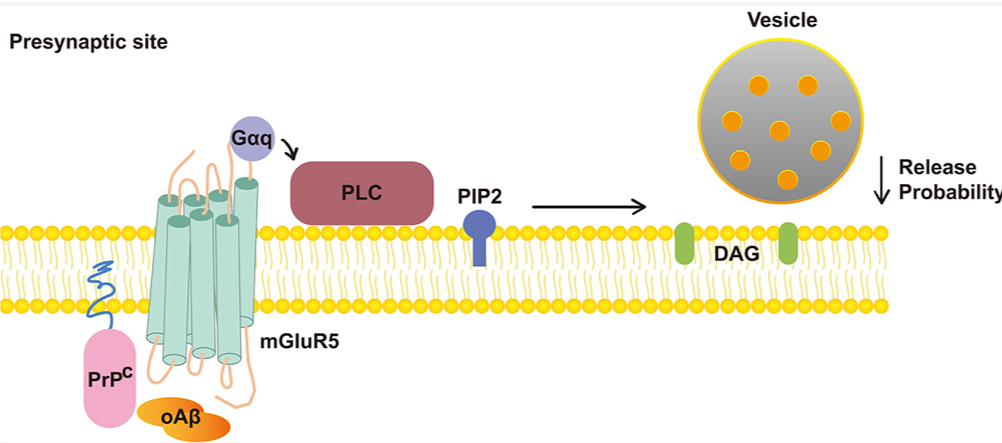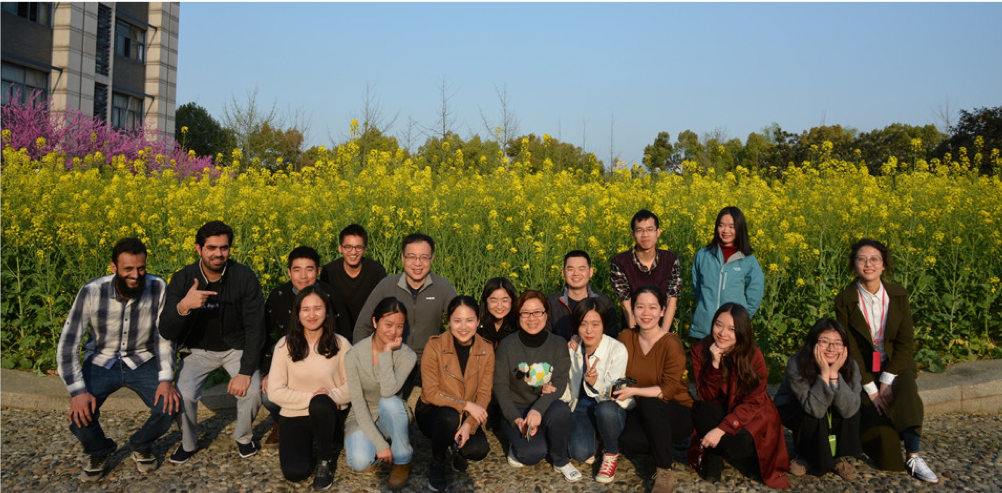Dr. Yudong Zhou/'s group published in Nature Communications
On Mar 13, 2019, Professor Yudong Zhou’s research group from Zhejiang University in China published a research article entitled “Amyloid β oligomers suppress excitatory transmitter release via presynaptic depletion of phosphatidylinositol-4,5-bisphosphate” (Yang He, et al.)in the journal Nature Communications.
Amyloid β (Aβ) oligomer-induced aberrant neurotransmitter release is proposed to be a crucial early event leading to synapse dysfunction in Alzheimer’s disease (AD).
In this article from Yudong Zhou’s team, they report that the release probability (Pr) at the synapse between the Schaffer collateral (SC) and CA1 pyramidal neurons is significantly reduced at an early stage in mouse models of AD with elevated Aβ production. High nanomolar synthetic oligomeric Aβ42also suppresses Pr at the SC-CA1 synapse in wild-type mice. This Aβ-induced suppression of Pr is mainly due to an mGluR5-mediated depletion of phosphatidylinositol-4,5-bisphosphate (PIP2) in axons. Selectively inhibiting Aβ-induced PIP2hydrolysis in the CA3 region of the hippocampus strongly prevents oligomeric Aβ-induced suppression of Pr at the SC-CA1 synapse and rescues synaptic and spatial learning and memory deficits in APP/PS1 mice. These results reveal the presynaptic mGluR5-PIP2pathway whereby oligomeric Aβ induces early synaptic deficits in AD for the first time.









